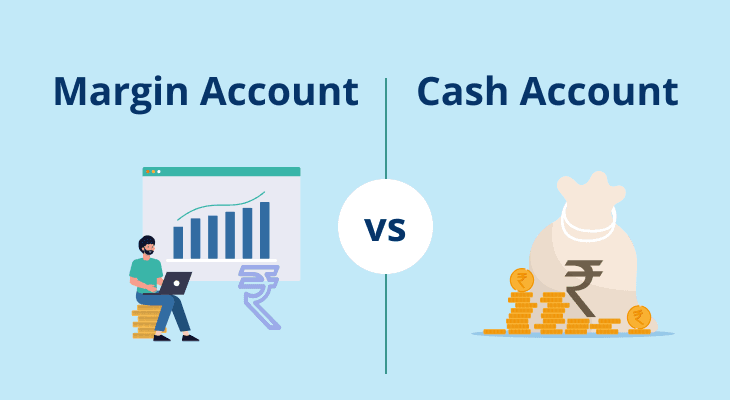
Is Demat Account Mandatory for Investing in Derivatives?
The financial derivatives market is quickly gaining in popularity. An increasing number of investors are now participating in the derivatives segment both to hedge their risk and to profit from the price movements of the underlying assets.
While it is mandatory to possess a Demat account for purchasing and selling equity shares, is it also required for derivatives trading? Let’s take a look at whether you need to go through the Demat account opening process to be able to trade in derivatives. But before that, here’s a brief overview of how derivative instruments work.
How do Derivative investments work?
A derivative is a financial contract between two parties whose value is based on the value of its underlying asset. So if the underlying asset’s value increases, the contract’s value also goes up and vice versa.
Derivative contracts have limited validity and involve the purchase or sale of an underlying asset at a predetermined price on a specific date. In India, there are two types of derivatives that you can trade via exchanges - futures and options.
In a futures contract, the buyer of the contract agrees to purchase the underlying asset at a particular price, known as the futures price, on the contract expiration date. Similarly, the seller of the contract agrees to sell the underlying asset at the futures price on the contract expiration date. Once a futures contract is entered into, both the buyer and seller are legally obligated to follow through with their end of the agreement.
In an options contract, the buyer of the option gets the right to purchase or sell the underlying asset at a particular price, known as the strike price, on the contract expiration date. Unlike futures, the option buyer has the right and not the obligation to follow through with their end of the agreement. This effectively means that the option buyer may choose not to exercise their right on the expiration date, in which case the contract will become worthless. The option seller, meanwhile, is contractually obligated to follow through with their end of the agreement.
Investment in Derivatives: Is Demat account a Prerequisite?
The requirement of a Demat account to invest in derivatives is dependent on the type of asset - equity or non-equity - that you wish to trade in.
Investment in Commodity Derivatives
Commodity trading involves the purchase and sale of commodities such as rice, wheat, gold, silver, crude oil, and natural gas, among others. Unlike the equity market, trading in commodities can be done only via derivatives such as futures and options.
Depending on the commodity derivative contract, they can either be cash settled or physically settled. In the case of cash settlement, there would be no physical delivery of commodities on the expiration date.
On the contrary, derivatives that are physically settled involve the physical delivery of the commodity. Most agricultural commodity derivatives are cash-settled, whereas bullion and metal derivatives involve physical delivery of the said commodity.
Since commodity derivatives are either cash settled or physically settled on expiry, you don’t need a Demat account to invest. This is because a Demat account is a digital account that can only be used to store electronic securities. Instead, all you need is a trading account from a reputed stockbroking entity such as m.Stock.
Investment in Equity Derivatives
In the case of the equity segment, however, you need a Demat account to trade in equity derivatives. This is because of a SEBI mandate that states that all equity derivatives be physically settled on the contract expiration date.
Since the contracts are settled through the physical delivery of equity shares, you need a Demat account to safely store the delivered equity shares. That’s not all. The Demat account needs to be linked to your trading account for you to participate in the equity derivatives market.
Conclusion
To put it simply, you would have to go through the Demat account opening process if you wish to trade in equity derivatives. On the other hand, if you only wish to trade in commodity derivatives, you don’t technically need a Demat account. Speaking of the financial derivatives market, m.Stock’s trading and Demat account enables you to trade in multiple segments, including equity, commodities and even currencies. The robust trading platform of m.Stock enables you to execute trades at lightning-fast speeds. Additionally, you also get to enjoy zero brokerage on equity delivery, mutual funds and IPOs.
FAQ
Is a Demat account required for trading in futures and options?
The Securities and Exchange Board of India in 2018 mandated that all equity derivatives such as futures and options, be settled physically. Since physical settlement involves the delivery of equity shares, a Demat account is mandatory for trading in equity futures and options. However, in the case of commodity futures and options, you don’t require a Demat account since they’re either settled in cash or the commodity is physically delivered to you.
What are derivatives?
Derivatives are financial contracts whose value is based on the value of their underlying asset. Derivative contracts involve the purchase or sale of the underlying asset on a future date at a predetermined price. There are two kinds of derivatives that you can trade - futures and options.
Can a Demat account differ from a trading account?
Yes. A Demat account is different from a trading account. A trading account merely enables you to purchase and sell securities on the stock exchange, whereas a Demat account allows you to store your purchased securities electronically


